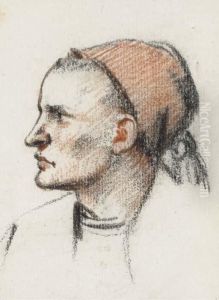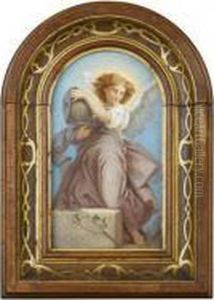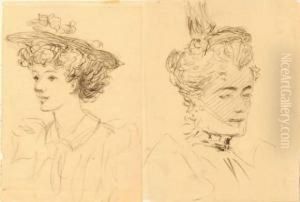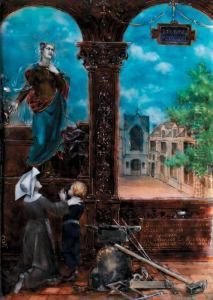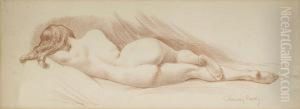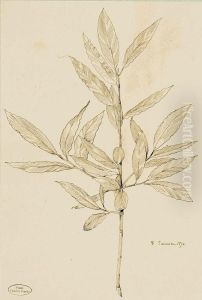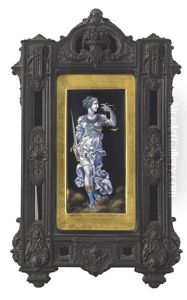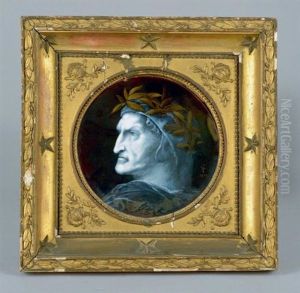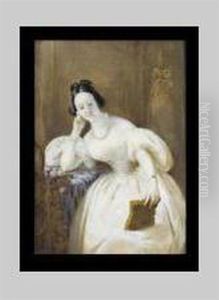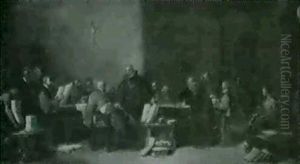Claudius Marcel Popelin-Ducarre Paintings
Claudius Marcel Popelin-Ducarre, born in 1825 in Paris, France, was a multifaceted artist renowned for his contributions as a poet, enamel painter, and art critic during the 19th century. Popelin's career and artistic endeavors were deeply influenced by the rich cultural milieu of Paris, the epicenter of European art and literature during his lifetime. His work and expertise were primarily centered around the revival of enamel painting, a medium that saw significant decline since the Renaissance but was passionately revived by artists like Popelin in the 19th century.
Educated in the classics and showing an early interest in the arts, Popelin initially embarked on a career in law, following societal expectations. However, his profound passion for art could not be sidelined for long. By the 1850s, Popelin had devoted himself entirely to the study and practice of enamel painting, drawing inspiration from historical techniques and the works of the Old Masters. His dedication led him to become one of the leading figures in the 19th-century revival of this art form, making significant contributions through his creations and writings on the subject.
Apart from his practical work in enamel, Popelin was also recognized as a talented writer. He penned several essays and books on art, notably discussing the aesthetics and techniques of enamel painting, which were well-received by his contemporaries. His writings not only reflected his deep understanding of art history and techniques but also his philosophical views on beauty and the role of art in society.
Throughout his career, Popelin was an advocate for the integration of beauty and craftsmanship in everyday objects, a principle that resonated with the Arts and Crafts movement emerging towards the end of his life. He collaborated with other artists and contributed to the decorative arts, applying his enamel techniques to jewelry and decorative objects, thus blurring the lines between fine and applied arts.
Popelin's legacy is marked by his role in the revival of enamel painting and his influence on the decorative arts of the late 19th century. His works and writings continue to be studied for their contribution to the understanding and appreciation of this intricate art form. Claudius Marcel Popelin-Ducarre passed away in 1892, leaving behind a body of work that continues to inspire enamellists and art historians alike.
